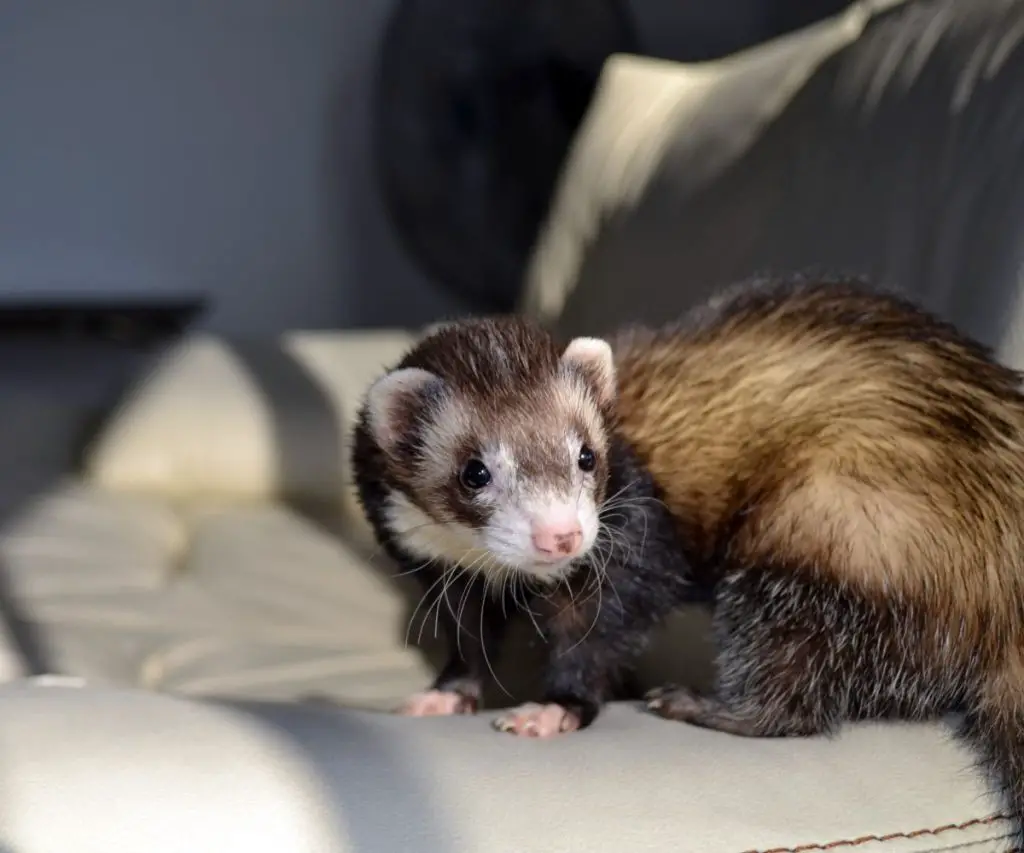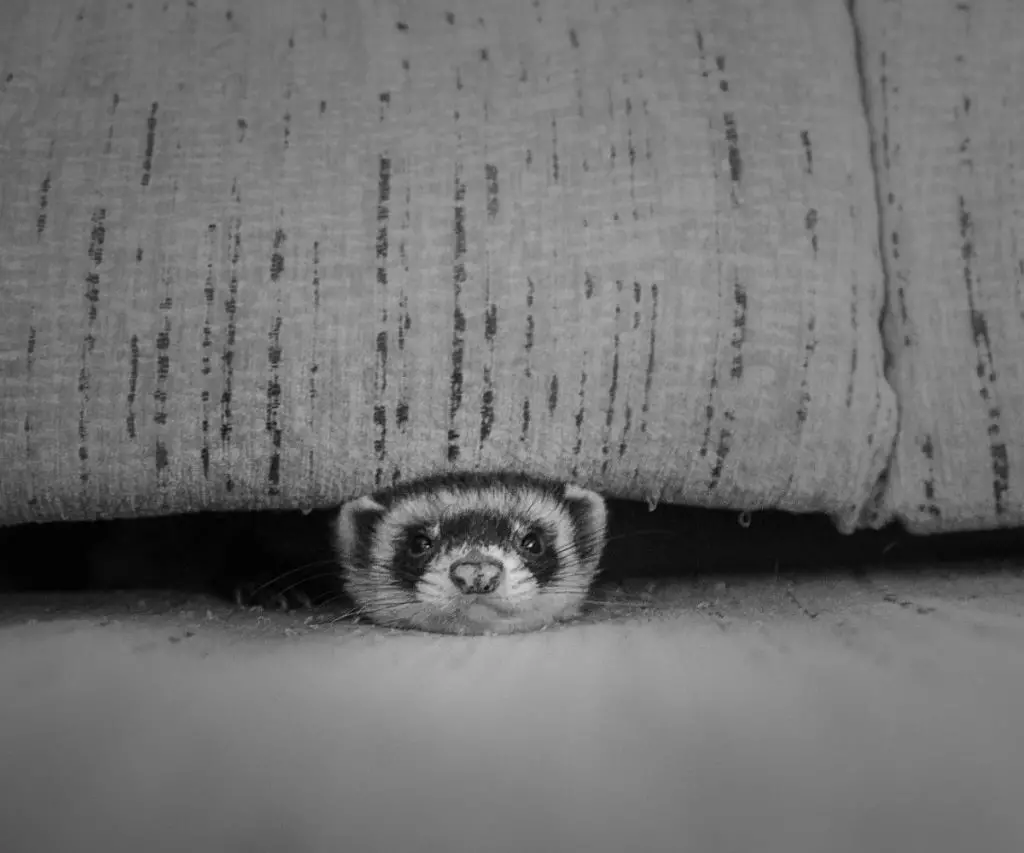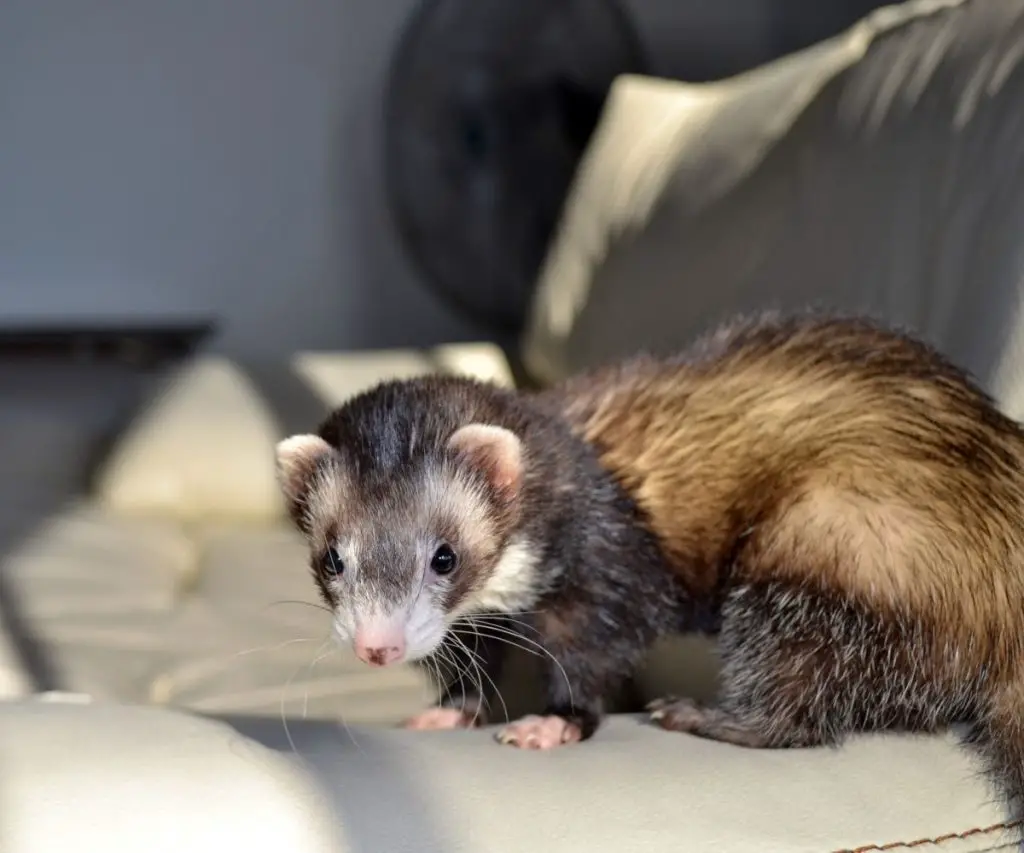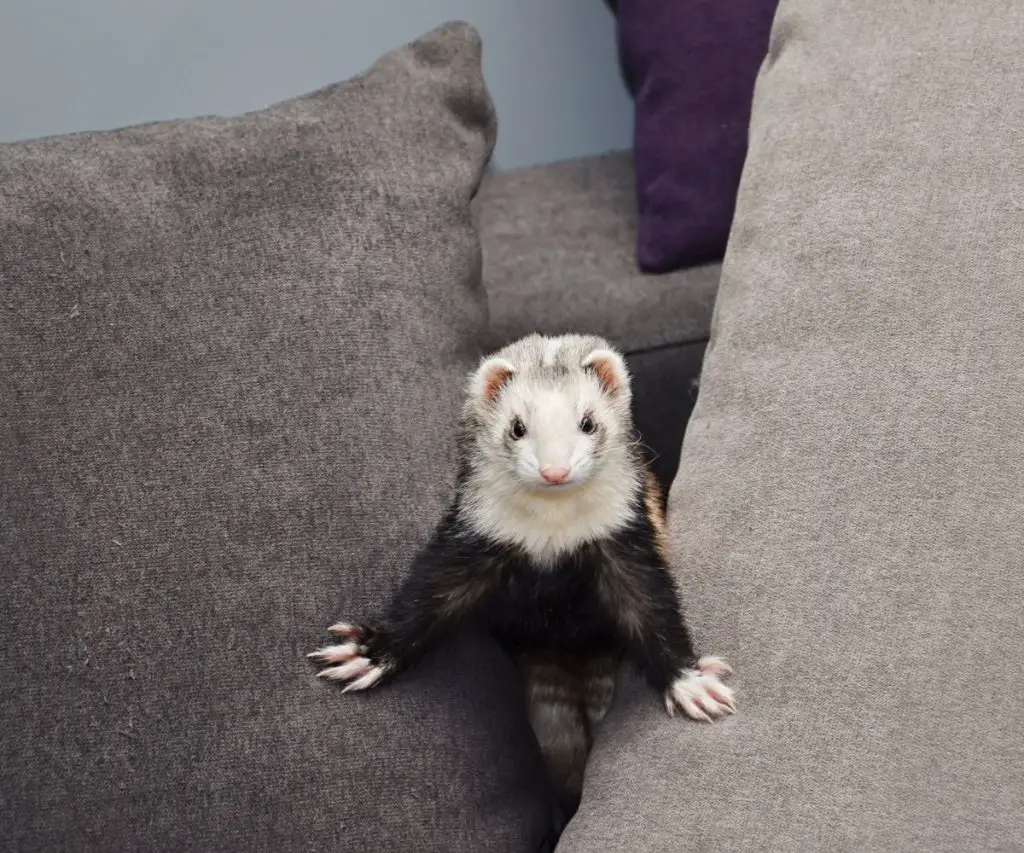Ferrets have nails akin to that of cats, except they can’t retract them. It’s also in their nature to want to dig. Unfortunately, that means that they can end up doing significant damage as they roam around your home.
Needless to say, if you’re wondering, “Do ferrets scratch furniture?” The answer is a resounding yes. Read on to learn more about ferrets scratching furniture and how to stop them.
Do Ferrets Scratch Furniture?
Ferrets can significantly scratch up your furniture because they have long, sharp nails. However, unlike cats, which can be a hit or miss with scratching your furniture, ferrets can’t pull in their claws. Furthermore, ferrets are natural diggers.

Can Ferrets be Destructive?
Ferrets are loving pets, but they can be very destructive to homes. Some of the most common ways that ferrets can destroy your property include:
- Scratching furniture
- Chewing through wires
- Having accidents on rugs
Ferrets aren’t inherently mean animals. Instead, they behave how nature created them—they walk around with their nails out and desire to dig.
Therefore, if you choose to welcome a ferret into your family, it’s your responsibility to ensure your house has the proper measures to keep both your ferret and belongings out of harm’s way.

Do Ferrets Damage Furniture?
Ferrets don’t damage furniture intentionally. Instead, they scratch furniture because they have long nails that they can’t retract. Therefore, the simple act of walking across your table or curling up in a ball to sleep can create scratches.
Furthermore, ferrets are diggers by nature. So, your comfy reclining chair can seem like a field day to them.
Before you bring a ferret into your home, it’s your responsibility to assess your furniture and decide what you do and don’t want your ferret having access to.
If you have old furniture, you might not care that your ferret scratches it. However, if you don’t want your furniture to get scratched, then it’s best to use gates to keep them barricaded from it.
You can also keep their nails trimmed as a preventative method, just in case they end up getting access to your precious sofa.
Why Is My Ferret Scratching the Couch?
Your ferret is likely scratching your couch because they think it’s dirt. In the wild, ferrets scratch at the ground for several reasons, including:
- Hunting for prey
- Hiding food
- Burrowing
If your ferret isn’t actively scratching at your couch but instead passively leaves scratch marks, that has to do with the nature of their nails—they can’t retract them, so if you don’t keep them cut, they’ll naturally scratch anything soft as they move about your home.

How Do You Stop Ferrets from Scratching Furniture?
There are many ways to stop your ferrets from scratching furniture, including creating barricades, clipping their nails, buying ferret-proof furniture, and offering them items that you’re okay with your ferret scratching.
Whichever option you choose, remember always to use positive reinforcement techniques when working with your ferret.
Setting up Barricades
There are several options you can use for barricades to prevent your ferret from reaching your furniture. One of the best choices is an animal door gate, which fits across the width of hallways to keep your ferret out of entire portions of your house.
Alternatively, you can use a ferret pet pen. These are excellent for playtime because you can easily set it up and take it down in different parts of your house—even in your backyard, where your ferret can let out their digging energy.
Some people also use baby gates to keep their ferrets away from their furniture. That’s a great option if the gate doesn’t have a design that allows a ferret to climb over.
Keeping Your Ferret’s Nails Trimmed
Like human nails, a ferret’s nails are ever-growing. So, trimming your ferret’s nails once per month will cut down on the amount of damage they can do to your furniture by scratching.
You can easily trim your ferret’s nails at home by using trimmers such as Living World’s Animal Nail Trimmer. These small trimmers fit comfortably into your hand and have a sharp tip. Therefore, you can easily cut your ferret’s nails with a single stroke for a quick and trauma-free experience.

Ferret-Proof Furniture
Ferrets tend to perform digging and scratching behaviors on comfy furniture. Therefore, using plastic or wood furniture in places your ferret has access to is an excellent way to prevent scratching.
That said, your ferret’s nails can still scratch up wood even when they’re walking on it without digging. So, it’s best to choose a hardwood like walnut or Ebony to avoid surface scratches.
Another way to ferret-proof furniture is by having tall furniture where they don’t have access to climb onto other objects to reach it. Two feet is about as high as ferrets can jump.
So, for example, if you have bar stools with cushions and there aren’t any lower-lying objects that the ferret can use to reach the cushions, you won’t have to worry about it.
Create Digging Opportunities
Now that you know the answer to “Do ferrets scratch furniture?” you might be feeling guilty that you’re preventing your ferrets from performing an instinctive habit. So, giving them items that they can dig and burrow in to distract them from your furniture is an excellent option.
You can do this by building a dig box. To do so, take a plastic container with high walls and fill it with digging-friendly ingredients such as dried beans, soil, or dried elbow pasta.
You can also use rice, as long as you don’t use the instant kind. If you decide to fill the box with soil, make sure it doesn’t contain sand because this can negatively impact your ferret’s digestive tract.
Do I Have to Worry About My Ferret Scratching Furniture?
If you have a ferret, you’ll need to follow the strategies covered here to prevent them from scratching your furniture. Then, with a bit of advanced planning, your ferret and furniture will enjoy a happy co-living environment.


